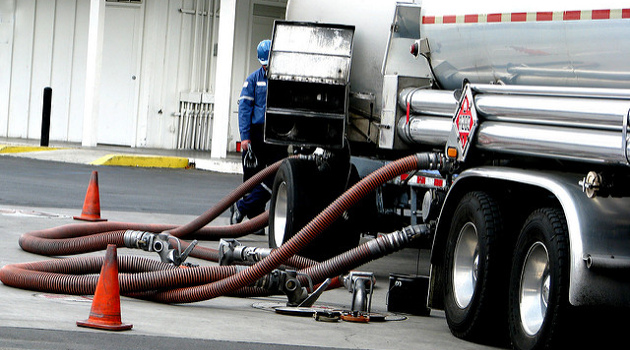It doesn’t seem like anyone is impressed by President Biden’s call for a federal gas-tax holiday. Since it was proposed last month, the plan has been panned from the left and right. Congressional leadership on both sides of the aisle are cool to the idea.
But I’m not above beating a dead horse, so let’s look at just how bad a gimmick this really is.
A federal gas tax holiday would save consumers at most about 18 cents per gallon, if we generously assume all relief would be passed through to customers. As a general rule I’m in favor of lowering taxes even modestly, but for the purpose Biden hopes to achieve — namely, offering meaningful relief for budget-straining price increases — the idea just doesn’t work.
Not only are the savings paltry, but as NTU’s Andrew Wilford explains, a federal-gas tax holiday would worsen the underlying market conditions that are pushing prices up (emphasis mine):
During the pandemic, people traveled less, almost wholly abandoning vacation plans and often working from home. As demand cratered, oil-producing countries stopped pumping as much oil, and supply chains adjusted to decreased capacity.
Yet around the time vaccines became widespread, that demand for oil came back all at once. Unfortunately, ramping back up oil production cannot happen overnight, and even if it could, supply chains are not equipped to handle it. The result: demand far exceeds supply, resulting in skyrocketing gas prices.
In that context, a federal gas tax holiday is a ludicrous solution. It would represent an attempt to solve rising prices when prices are not the problem. They are an indicator of the problem, which is that supply cannot keep up with demand.
…As a result, it’s quite likely that a gas tax holiday would provide you with little price relief at the pump. Even if the gas tax holiday reduced prices in the short term, any reduction in gas prices would increase demand — in turn pushing gas prices back up.
As a recent tweet demonstrates, Biden doesn’t understand how market factors of supply and demand determine price, or he ignores that knowledge for political convenience.
It takes years for energy producers to bring new supply to market. They aren’t basing those decisions on 3-month policies and their effects, whatever they may be. In fact, the tough guy stance Biden took in his tweet, and its implied threat to involve the government further in prices if producers don’t comply, is likely to discourage investment by creating fear and uncertainty. But that’s just a continuation of Biden’s agenda up to this point, going back to his campaign promise to “end fossil fuel,” and his immediate cancelation of the Keystone XL pipeline upon taking office.
Given his apparent panic over today’s elevated prices, one wonders just what Biden expected to happen as a result of his many efforts to restrict oil and gas supply. He must have assumed the inevitable price increases would be a problem for a future president. Or perhaps, like the frog slowly brought to a boil, he figured Americans would hardly notice if prices only climbed a bit higher than overall inflation until eventually gas was unaffordable for most Americans. Alas, the best laid plans…
The President can’t seem to decide whether he wants gas cheap (and therefore plentiful) or limited (and therefore expensive). His proposals work at cross purposes and demonstrate a confused policy agenda that represents exactly the sort of uncertainty that has long discouraged development of new extraction and refining.
Instead of gimmick relief proposals, or threats and bullying on prices, Biden should embrace an agenda of abundance instead of energy austerity.
———
Image credit: Rennett Stowe | CC BY 2.0.

